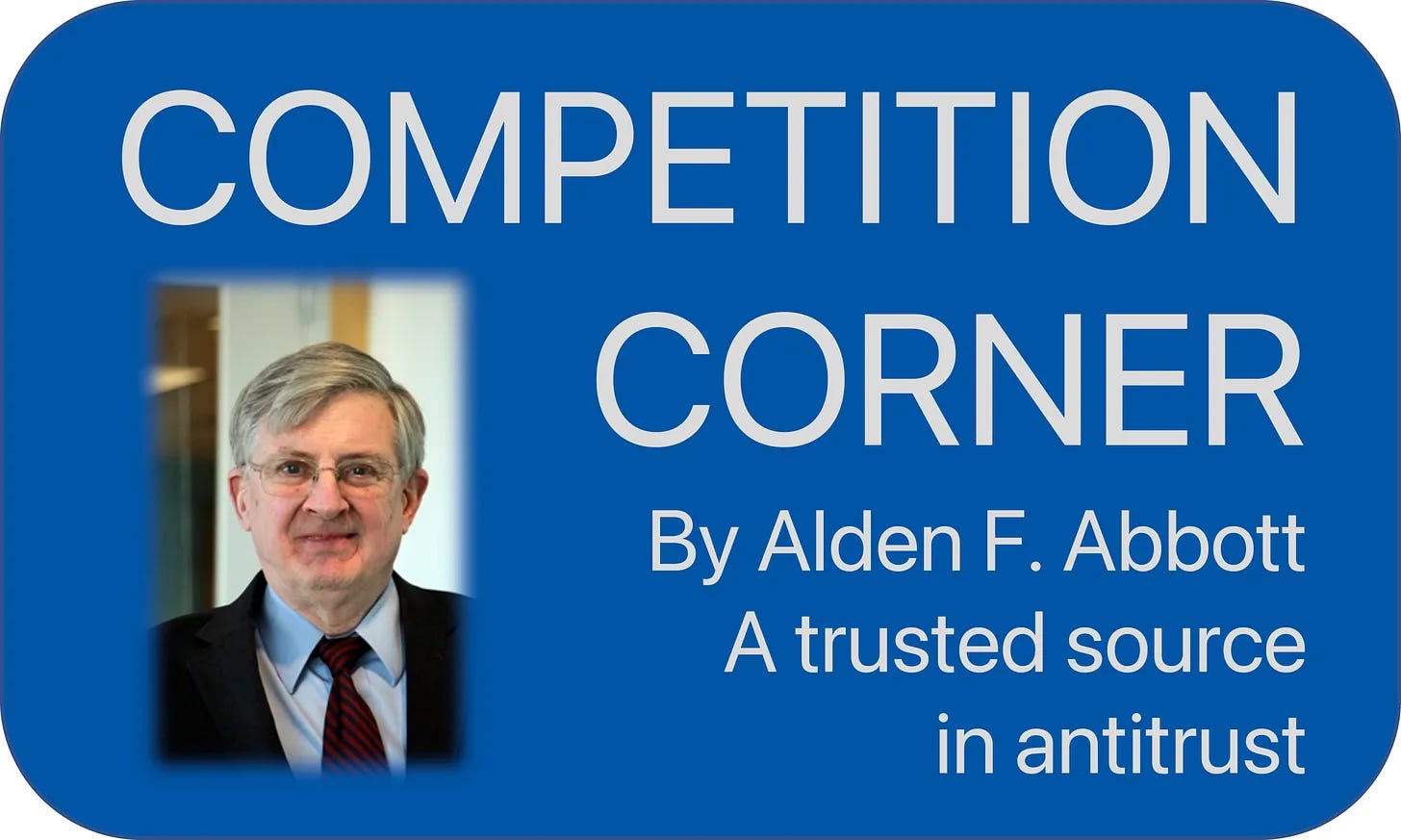Summer is almost here and the forces of antitrust continue to break sweat over prosecutions and proposed rules that don’t necessarily bode well for regular Americans, innovation or our economy’s competitiveness.
DOJ vs. Live Nation-Ticketmaster
Last week, the Department of Justice (DOJ) antitrust division, and the attorneys general of 29 states and the District of Columbia, launched an antitrust suit against ticketing giant Live Nation. The suit seeks its divestiture of Ticketmaster, and injunctions against various allegedly anticompetitive practices. The DOJ claims that Live Nation leveraged its market position to lock entertainment venues into exclusive ticketing contracts and induced artists into using its services, including through threatening financial penalties. As I explained to the Hollywood Reporter and other outlets, Justice will need to show that Live Nation engaged in “exclusionary behavior,” that is business conduct “not on the merits” that inefficiently excludes competition from the market it dominates, and which does not make business sense other than for maintaining its alleged monopoly. Merely charging high prices, or experiencing service glitches such as the highly publicized failure of the company’s ticket sales system impacting a Taylor Swift concert, doesn’t violate antitrust law. It is also unclear whether breaking up Live Nation would help consumers or just lead to less efficient competitors that won’t necessarily charge consumers less, and that are just as glitch-prone or even more. Will the DOJ be able to meet its heavy burden? Let’s wait and see.
Populist Antitrust Has Failed Small Businesses and Consumers
This month, my colleague Satya Marar released a policy brief documenting the many ways in which the populist “Neo-brandeisian” antitrust strategies of the Biden administration FTC and DOJ antitrust division have made (or are likely to make) life more difficult for the very small businesses that Neo-brandeisian philosophy claims to protect. From punishing firms that negotiate exclusive discounts from their suppliers, to potentially driving up the prices and lowering the quality of digital services that smaller firms depend on, to discouraging venture capital investment in start-ups through aggressively trying to block mergers and acquisitions, Satya documents failing strategies that the agencies must reconsider if they want to support robust competition.
Interestingly, Satya finds that even the Robinson-Patman Act (RPA), which was explicitly intended to shield smaller businesses from competition by punishing larger firms for negotiating exclusive discounts from suppliers, have disproportionately resulted in actions against smaller firms. He previously released a detailed brief on the RPA, and the likely implications of the FTC’s plans to step up RPA enforcement actions and investigations. This month, I also provided an outline of stepped-up RPA enforcement’s potential to harm consumers and competition in my column for Forbes.
Artificial Intelligence
In an entirely unsurprising continuation of events, Congress continues to contemplate further regulation of emerging AI technologies that could stymie innovation and raise costs while delivering few, tenuous, or non-existent benefits. In a recent Forbes column, I argue for a pragmatic, pro-user and pro-innovation approach that weighs the potential costs of regulations against their benefits, and that recognizes that nefarious AI-facilitated conduct is usually already illegal under existing laws that ought to be better-enforced before additional rules and regulation are considered. For a comprehensive overview of antitrust laws’ intersection and implications for AI-related issues, check out Satya Marar’s brief on AI and antitrust.
Memes & Myths of Antitrust
This month, we were pleased to release a working paper from University of Connecticut economics professor Richard Langlois that debunks several myths surrounding the role of many successful antitrust actions, including those against AT&T, Microsoft and IBM, in fostering competition and innovation. Rather than helping remove monopoly bottlenecks and spur innovation, Langlois finds that antitrust enforcement has failed to deliver positive outcomes and may also have led to negative consequences unintended by its supporters.
DOJ vs. Apple
My colleague Giorgio Castiglia recently analyzed the DOJ’s ongoing antitrust case against Apple for EconLib. Our senior research editor Tracy Miller and I have also written about the case and its implications for consumers and competition.
That’s all from us for now. Hope that everyone had a great Memorial Day.



